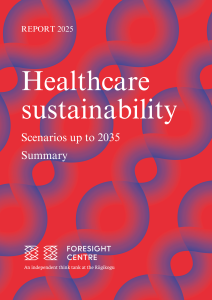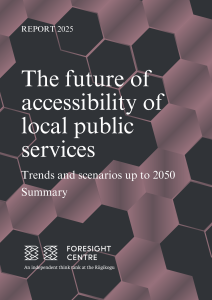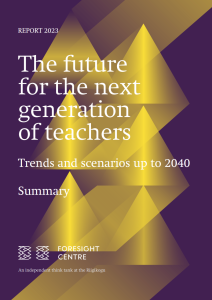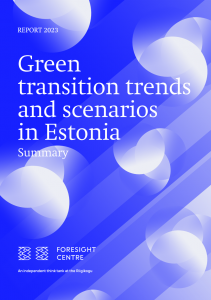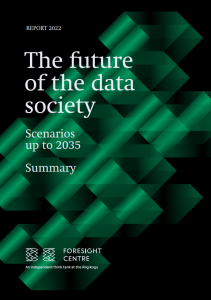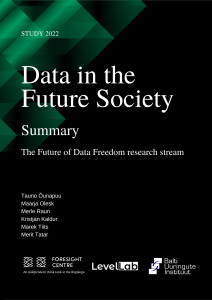The Estonian healthcare system relies on solidarity-based health insurance, in which working-age and healthy people contribute to covering their own medical costs as well as those of other insured people. The services are centrally financed and organised by the Estonian Health Insurance Fund. Two-thirds of healthcare revenues come from social tax paid by working people, who make up about half of all those who have health insurance.
Reports
In Estonia, there is a dense main local public services network, which means the accessibility of services is high compared to other European countries.
Culture and sports carry national identity and maintain social memory. At the same time, they create a strong sense of belonging, boost health and support social cohesion and personal well-being. Culture and sports create economic value through job creation, tourism and exports. We cannot focus only on short-term costs and revenues in funding these sectors; it is important to take a look at their long-term impact to help build a healthier, more cohesive and more economically viable society.
The purpose of this report is to explore opportunities how public sector services and benefits could better account for each person’s individuality and unique circumstances, thereby increasing both people’s wellbeing and service efficiency.
The Estonian electricity system is facing major changes that reflect global trends, such as electrification, decentralised generation and the open energy market. As a result, the traditional electricity systems are being redesigned.
Current research highlights key uncertainties and critical factors that will influence the supply of teachers in Estonia up to the year 2040. In a future perspective, it is most important to recognize those trends that are currently underestimated but have the potential to significantly disrupt the entire education system as they grow.
The deterioration of the environment and climate warming pose significant risks to the well-being of people in Estonia. In alignment with the European Union’s green transition, Estonia has committed to achieving climate neutrality by 2050. To achieve these goals, mere improvements in existing energy systems may not suffice and fundamental changes are required in how energy is supplied to the population, and in how people move around, eat and live.
The spread of digital technology into every area of life has caused the datafication of the economy and society, as the actions of people, companies, machines and even nature leave a lasting data footprint.
The foresight study “Data in the Future Society” aims to contribute to increasing the use of data in public governance and helping shape forward-looking and informed data policies. This project was commissioned by the Government Office and the Foresight Centre and carried out by LevelLab in cooperation with the Institute of Baltic Studies.

 An independent think tank at the Riigikogu
An independent think tank at the Riigikogu 